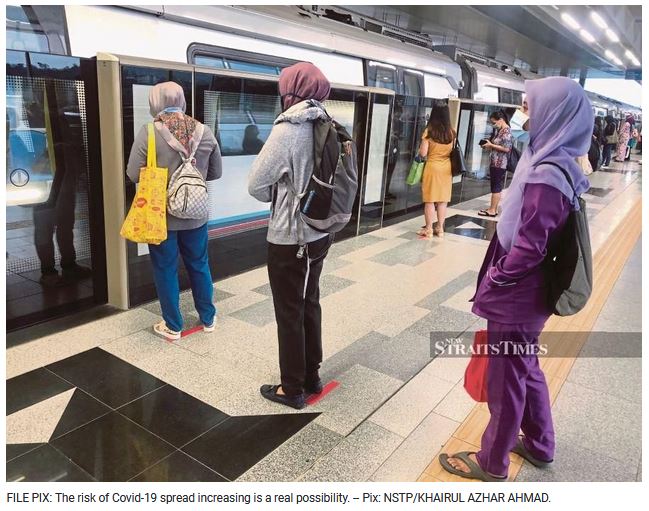Physical distancing should include social bonding, solidarity
Emeritus Professor Tan Sri Dato' Dzulkifli Abdul Razak
Opinion - New Straits Times
August 8, 2020
THE best news on Aidiladha this year was the tweet from the Health Ministry (MoH) saying that "physical" distancing was to replace "social" distancing. The former is deemed to be easier to understand for the lay public, especially children.
It could come at no better time as we get more serious to "impose" more disciplined behavioural change as responsible citizens.
Educationally speaking, this change should have been sorted out much earlier if only the relevant authorities and the educators took a more proactive role in arguing the change.
Much would have been resolved while also avoiding the needless confusion among the students and staff alike on the issue. So much so, of late, there were voices suggesting that schools must be closed again because "physical" distancing is not happening, especially at the lower levels.
The risk of Covid-19 spread increasing is a real possibility if this is the case. That many prefer to remain silent rather than speak up is unfortunate. If the educated population takes this easy way out than we will be at the mercy of the deadly virus. It is, therefore, time to address them quickly so as to reset old habits and behaviours to new ones that all can share.
Another equally important message to highlight is to further substitute the use of "social distancing" with social "solidarity", "cohesion" or "bonding".
Implying that every citizen must be supportive of one another across all forms of divides (read distancing) — be it technical, social or even political.
We have seen enough examples as to how this fails even in the most powerful nation on Earth just because it deliberately creates more distance among the population leading to the "Black Lives Matter" protest.
In other words, in this case, socio-political distancing has become dominant in the fight for power and influence. It lacks the much needed rapport involving all sides that is deemed crucial to develop a genuine sense of social oneness (kesatuan sosial) to effectively break the Covid-19 transmission across the board, once and for all.
Now that face masks have been made mandatory beginning Aug 1, it cannot be overemphasised that it will only work if there is social oneness.
That is, everyone is committed to wearing the face mask properly when required while rigorously observing physical distancing.
Succinctly, physical distancing must be coupled with the commitment to social oneness and bonding for maximum outcome.
One without the other will still make the situation to be uncertain as exemplified by the formation of new clusters of late.
For a multiracial and multireligious society like ours, the commitment to social bonding, let alone oneness, is often lost to blind loyalty implored towards racial and religious bias.
No matter how this matter is argued, the ultimate losers will be everyone because this allows Covid-19 to be the ultimate winner.
The same could be said on a global scale when one nation pits itself or wages "war" against another at the expense of global solidarity that agencies like the World Health Organisation (WHO) has been warning against.
Worse still when WHO itself has been turned into a "target" based on some dubious reasoning.
Lest we forget, the virus has no loyalty to anything whatsoever no matter what nationality, ideology or even stature as arbitrarily assigned.
In this context, the world is now at a crossroads in coming together for the benefit of all, especially the marginalised and elderly who are even more vulnerable.
If this "oneness" cannot be agreed on now, one can only imagine the worst once a vaccine is discovered by the more affluent part of the world.
We have seen how that part of the world tends to "monopolise" simple items such as face masks, ventilators and the like when it comes to the crunch.
There is virtually no social solidarity to speak of at all levels in that context. In fact, it is the act of social distancing at its best, whether it is intended or not. Given such a state of affairs, to distance ourselves from the idea about "social distancing" is not only timely but also warranted in ensuring a safer future.
Ironically, from that point of view, Covid-19 can act as the best "social glue" yet, if only it is properly understood and leveraged.
The writer, a New Straits Times columnist for more than 20 years, is International Islamic University Malaysia rector
The views expressed in this article are the author's own and do not necessarily reflect those of the New Straits Times

